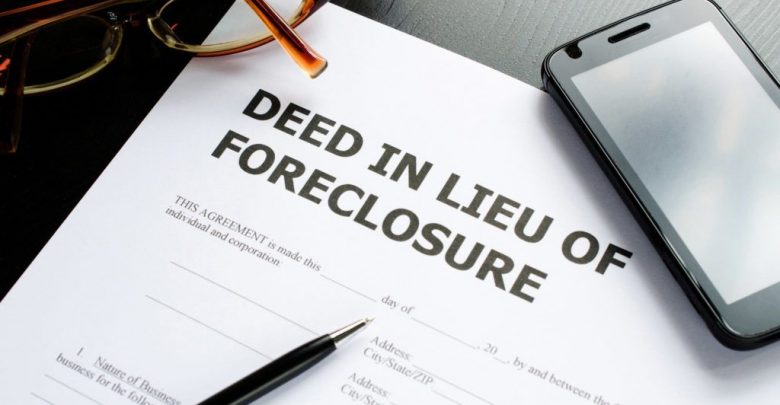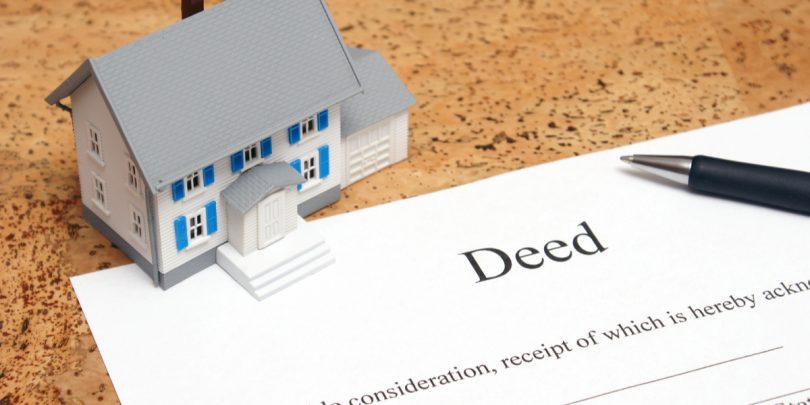Everything to Know About Deed in Lieu

If you’ve heard of banks offering homeowners the option of a deed over a short sale instead of foreclosure, you might wonder why anyone would want to give their home a deed to a bank instead of going through the short selling process. Essentially, the bank tells you to go pound sand if the bank refuses your short offer. Why would you want the bank to support those circumstances? In lieu of deed may in some cases favor a bank more than it favors a homeowner. Most people face the deed in place decision after either denying a modification of the loan or rejecting a short sale. For example, if you have equity, before putting a deed in effect, you can sell the home, but some buyers making this dilemma have no equity, as their mortgage is underwater.
The hypothetical basics start with the fact that each month you have to pay your mortgage.
The unfortunate fact is life is happening, and circumstances with your mortgage can make staying current impossible. If this is your case, you may think that hedging is the only choice you have.
You may not know what an act is instead of bankruptcy, or a short sale. Both of these are simple mortgage options that damage your reputation less than a foreclosure or bankruptcy does.
What is a Deed in Lieu?

A foreclosure deed in lieu of title-transfer document signed by the homeowner, notarized by a notary public and eventually recorded in the public records. It moves the title of the home from the homeowner to the bank which owns the mortgage.
Rejected Deed in Foreclosure
Lieu: A common misconception in deeds instead is that the land has to be in foreclosure. The applicant may or may not have submitted a notice of default to foreclose or begun judicial proceedings, but may still be open to discussing an act instead. However, if the homeowner is current, banks are often reluctant to accept a deed instead of foreclosure, but being current doesn’t mean the bank will refuse. Banks are not obliged to accept an act in lieu of foreclosure. Here are a couple of reasons a bank might refuse an act instead:
The bank is not profiting from such action. If a bank feels it can make more money by foreclosure, either because the property has equity or because the federal government provides the bank with financial incentives to foreclose, the bank may refuse an offer from the homeowner to accept the deed instead of foreclosure.
Junior responsible, verdict, or tax liability. Every future lien filed against the house will continue with the property and become the responsibility of the owner if it is not issued for a mortgage instead of bankruptcy pursuant to negotiation. Typically, the best candidate is an estate with only one loan. And, if the first loan is existing and the property is worth more than the number of its encumbrances, a second lender may grant a deed in exchange.
Guidelines for servicing prohibit deeds instead. Many loans are serviced by PSAs, and the guidelines in those PSAs could ban an act instead of foreclosure. PSAs are required to follow guidelines and can not be altered on those terms.
Conditions unacceptable. It is also likely that the PSA will require the borrower to make a financial donation in return for taking the deed instead and the borrower may refuse either because of principle or lack of reason.
Drawbacks to a Deed in Lieu of Foreclosure

Also, seek legal advice to give the bank a deed instead of bankruptcy before running at the door. Remember, obtaining the deed from you is in the Bank’s interest. Compliance might not be in the best interest. In some cases, it can be argued that handing a bank a deed instead of bankruptcy is just one step above the mortgage walking away. There are a few ways that you might be impacted by an act instead of foreclosure:
Ability to buy another house. There is no such thing as giving a deed in order and turning around to buy another home immediately. The mortgage companies, Fannie Mae and Freddie Mac, who buy second-market loans will not buy a mortgage made by an investor who signed an act in effect for four years without extenuating circumstances, two years of extenuating circumstances. They are constantly making improvements to instructions.
Compare the wait to buy after a foreclosure, which is seven years without extenuating circumstances, five years with, and what you got is essentially a three-year gain. Looking at it differently, a short sale could allow you to purchase a home within two years, in which case you may have wasted two years if you are forced to wait for a deed in effect for four years.
Liability relief. Make sure that the deed in place specifically releases you from responsibility for repaying the loan. In addition, there’s little point in handing over title if you have a second lender who will pursue you for a shortfall.